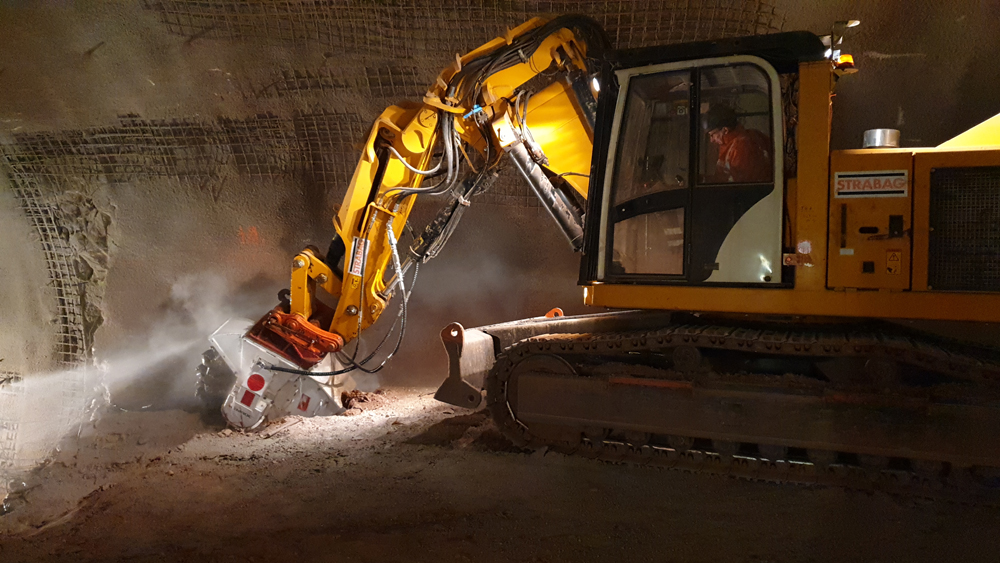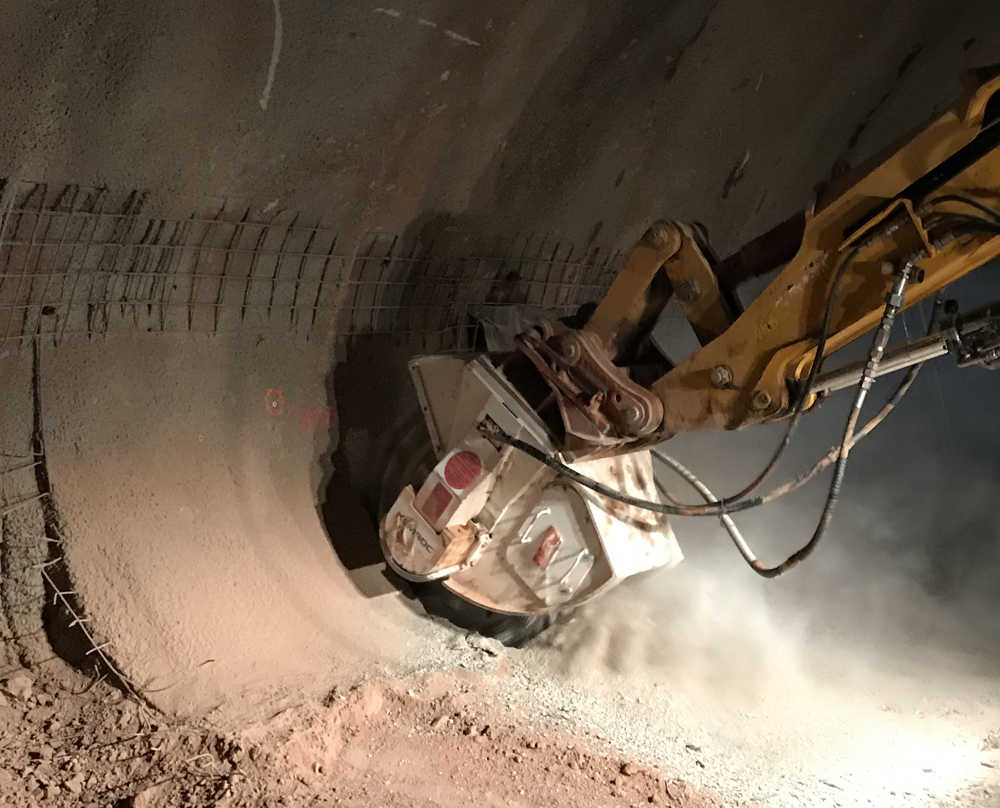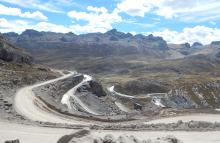
This includes the excavation of the 600m-long twin tube Trimberg Tunnel using conventional tunnelling methods. The tunnelling contractors at the HOCHTIEF/Züblin consortium had to contend with difficult geological conditions. Subsidence and loose boulders were encountered in both tunnel tubes for a length of 250m in the sandstone. For these reasons, the client, DEGES specified that the excavated tunnel should be stabilised using a temporary shotcrete layer.
Breakthrough of the North Tube of the Trimberg Tunnel took place in April 2019 and the contractor then started removing the temporary base layer.
A KEMROC DMW 130 cutter wheel mounted on a 23tonne excavator was used to remove the temporary structure. The concrete could be separated cleanly from the rock substrate and be recycled.

For the material removal work in the Trimberg Tunnel, a DMW cutting wheel rated at 130kW was chosen with 130mm cutting width and 600mm cutting depth. With this unit, the contractor achieved a cutting performance of 15-20m/hour. Using a cutter wheel also enabled the contractor to use an efficient removal process. The first step was to use the wheel to cut out a section, which was removed using a wheeled loader or excavator. The removed concrete was then taken off site by a waste disposal company as recycled material.
According to the consortium partners, a total of 125,000m3 of concrete has been removed from the two tunnel tubes in this tunnelling project. This has been carried out efficiently without a breaker, or drilling and blasting, saving costs.









